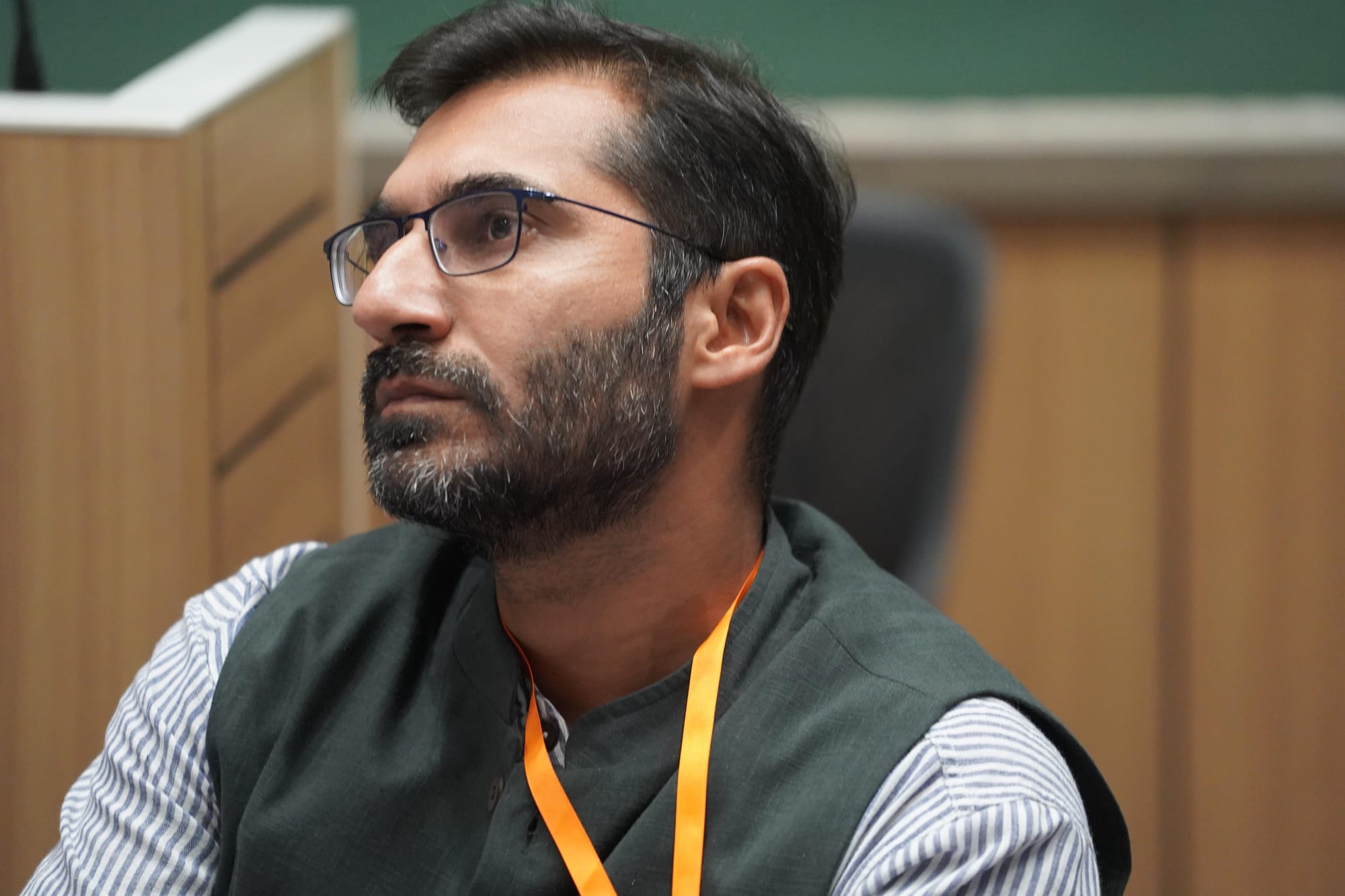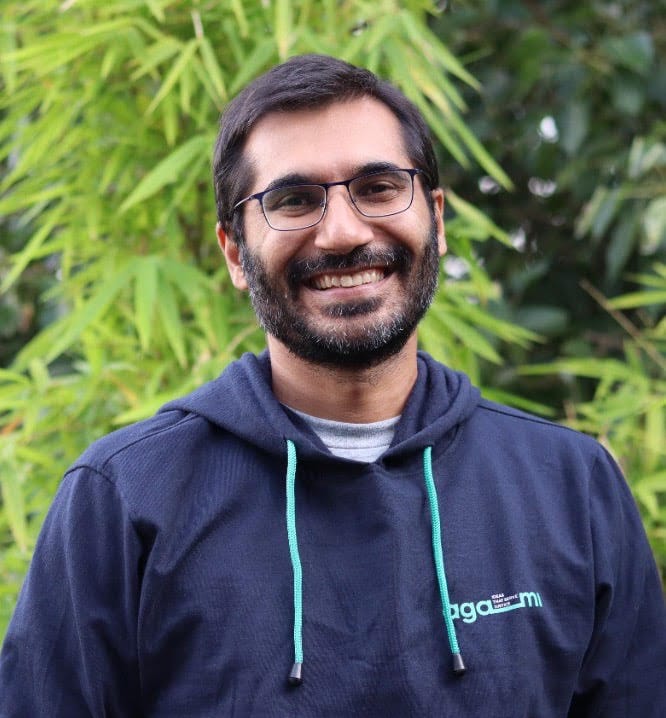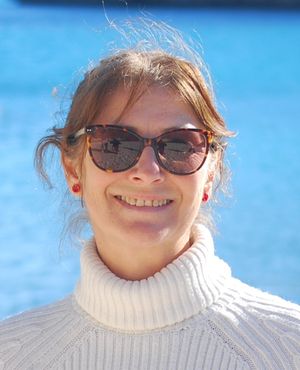Bengaluru, Karnataka, India
When traditional legal systems face stagnation, change is driven by people united around a common purpose. Sachin Malhan is one of those people. His commitment to meaningful work creates new possibilities for the legal system in India while simultaneously fulfilling his entrepreneurial ambitions.
Agami, a non-profit Sachin founded with Supriya Sankaran, aims to drive innovation to India's legal system, which has long faced numerous challenges. This philanthropically-focused organization serves as a network to unite individuals and organizations striving for positive change in India's legal space. Agami's role is being a facilitator — or, in other words, a community builder — connecting changemakers and giving them space to meet, collaborate, and develop new ideas. While it organizes events and activities to facilitate these connections, Agami doesn't see itself as providing specific services.
"[If I am] an innovator, I might be solving a specific problem, but there might be resources I need [that] I can't develop on my own. I need to collaborate with other people to develop those resources. I would say Agami enables these [innovators] to connect, collaborate, develop their capacities, and find friendship and companionship," says Sachin.
Agami's efforts have resulted in many initiatives, including the online dispute resolution ecosystem in India, which is now one of the largest in the world.
It all began by chance more than 20 years ago when Sachin unexpectedly found himself in a field he never planned to enter.
Chance or fate?
As a young professional, Sachin decided to take the National Law School of India University's (NLSIU) entrance exam as a fallback option should he fall short in pursuing medical school admission. To his surprise, Sachin secured the 57th and final spot among the selected candidates at NLSIU. Meanwhile, his prospects for medical school admission dimmed due to less-than-stellar academic performance.
Back then, Sachin had something in common with his fellow law students: uncertainty. Many were unsure of which path to take; others planned to graduate with a resolute ambition to practice law at prestigious firms or international organizations.
But Sachin's vision was always aimed beyond the traditional path. While his passion for studying law remained firm, he had a growing motivation to make significant global contributions. In 1999, during his third year as a law student, Sachin tested the waters of entrepreneurship when he founded a test preparation venture called Law School Tutorials (LST). Today, this enterprise operates in over 60 cities. It's achieved an impressive track record, with its students securing over 70% of the available seats at prestigious law schools.
This pivotal decision laid the foundation for what would unfold over the following decades. "I discovered the joy of making things," Sachin recalls. "That forever changed my life."
From lawyer to changemaker
For Sachin, there's nothing more fulfilling than turning an idea into reality. He thrives in the early stages — developing a vision, building a team, and creating meaningful experiences for those he serves. While he's motivated by the potential for social impact and market success, what truly drives him is the urge to collaborate with passionate people and build something enduring.
Apart from LST, Sachin has co-founded a series of ventures that have left a lasting impact, including Rainmaker, a dynamic learning and talent platform that redefines how individuals develop their skills and talents in the legal system. There's also Inclusive Planet, dedicated to breaking down barriers and ensuring greater literary access for individuals with visual impairments.
In 2010, Sachin was recognized as an INK Fellow for his contributions to technology, media, social change, and education. The INK Fellows program is an international and interdisciplinary network of emerging leaders who have the potential to influence the future. But the turning point in Sachin's career came when he joined Ashoka, one of the largest networks of social entrepreneurs based in Washington, DC. There, he served as the Executive Director for Ashoka's global program, Ashoka Changemakers, which aims to connect social innovators working on challenging social issues.
Sachin collaborated with international colleagues and entrepreneurs during his time at Ashoka. Together, they tried to find ways to solve tricky social problems by building environments that encourage new ideas.
"I think basically the thought in my head was, why can't the same principles that have the potential to transform other systems like healthcare or technology or finance be applied to legal services and justice? Why is India so stuck?" he said. "It's lack of innovation and stuck mindsets."
From the moment the thought came into his head, Sachin was determined to become a changemaker himself.

Unlocking entrepreneurial energy
Sachin's motivation to start Agami stemmed from the recognition that solving complex issues in Indian law requires a multifaceted approach, given the country's vast population of 1.4 billion people and the variety of challenges in the field. This approach positions Agami as the facilitator to help aspiring changemakers trust each other and work together effectively. As a result of Agami's efforts, they hope to see the collaborations they facilitate lead to innovation, transforming the legal system and ultimately making it more accessible to the Indian public.
One of the tools Agami uses to achieve its mission is the Agami Prize, the esteemed award for innovation within the Indian legal system. On the one hand, it is a source of motivation for visionary leaders and entrepreneurs. On the other hand, it consistently enables Sachin and his team to explore and discover novel innovations that might have otherwise gone unnoticed.
In 2022, one of the Agami Prize winners was Lawyered. This legal marketplace prioritizes consumer needs and specializes in affordable, high-quality legal solutions. They have recently disrupted the transport and logistics industry by offering 24/7 on-road legal assistance — their in-house lawyers resolve 89% of cases, and local lawyer intervention is required for the remaining 11%. Civis Vote, an Agami Prize winner from 2018, created the first platform in India to help citizens better understand laws and policies.
Another impactful project Sachin and the Agami team are leading establishes a robust nationwide system for resolving disputes outside the traditional court. In India, the time it takes to get to the finish line can vary significantly. While some disputes may find resolution in a matter of months, others can stretch on for several years, often demanding substantial financial and resource investments from the parties involved. The system further collapsed with the onset of the COVID-19 pandemic.
Sachin wanted to shift dispute resolution from a traditional courtroom-bound justice system to a flexible service accessible from anywhere. With that in mind, Agami started the ODR (Online Dispute Resolution) initiative in December 2018. Sachin and his team talked with different stakeholders, including the Indian government and legal startups, to convince them why ODR was important for India and what it would change.
Two years later, Agami and other partners, including the NITI Aayog government agency, developed a handbook with essential knowledge and lessons to help legal startups effectively embrace ODR.
While Agami accelerated the ecosystem development process, the startups are providing and innovating ODR services. Today, if someone wants to resolve a case, they can approach one of the over 20 startups that exist in the country. Over the years, the number of disputes that have gone online has surged from zero to 60 million.
For Sachin, the ODR initiative perfectly demonstrates how you can take the energy from the community of leaders and turn it into something unique because the individual collaborative efforts work to benefit the whole.
"We know a single actor will never succeed, but we say, 'Here are some big change opportunities. Let's go for them as a collective,'" says Sachin. He strongly believes in recognizing individuals for their entire selves, not just their organizational roles or identities. To make this belief a reality, Agami plans community events that foster genuine connections among its members. These events, including the Agami Summit and Agamishaala, encourage people to look beyond their job titles and embrace their unique qualities, building strong and lasting connections within the Agami community.
"Entrepreneurs have so much to share with each other, right? It's the battle they go through, the challenges. So, if you create a social space for them, which is also a space for vulnerability and growth, you will see strong community development.
"We are very focused on unlocking entrepreneurial energy — innovative energy — rather than delivering something ourselves."
A silver lining in times of crisis
Like any other entrepreneur, Sachin has seen his fair share of challenges. When juggling multiple projects simultaneously, the demands can become overwhelming, and Sachin often finds himself in cycles where he struggles to summon the energy necessary to continue. That's why such a big part of his work is about creating energy to drive his community of entrepreneurs forward when they're struggling themselves.
"At times like I've learned — am still learning — to hear better what my body is telling me."
Sachin says it's not always a straightforward solution like taking a break. Sometimes, it involves prioritizing physical well-being — shifting his focus away from the constant mental strain of his work.
He admits he usually shies away from confrontation. However, entrepreneurship has shown him that growth from conflicts is possible as well. "In some cases, it's made me more empathetic, more introspective, and in others, it's made me fiercer and more courageous."
Courage was something that Sachin would later need to overcome the uncertainty brought on by the COVID-19 pandemic. After the initial shock, he felt it was "a big moment in time" that would impact his entire life beyond his work. So, instead of adopting a wait-and-see approach, Sachin and the Agami team proactively doubled down and focused on specific initiatives, shifting from a defensive stance to a creative and adaptive one. In April 2020, Agami, in collaboration with the ODR working group, organized the most extensive and openly accessible week-long virtual gathering on ODR to date.
Sachin's vision for the future
Sachin humbly questions how much he could take credit for the events in his life. He said success is often the result of a complex interplay of factors, including luck, the kindness of others, timing, and collaborative efforts. There is no need to oversimplify these experiences into neat success stories; for him, being a part of the journey, with all its intricacies and imperfections, is enough. After all, it's far more nuanced and profound than a mere portrayal on a social media platform. "Life is not LinkedIn," he adds.
Sachin believes the fundamental driver of success is one's readiness and preparedness to navigate unexpected challenges. He says an entrepreneur's most exciting and transformative work involves preparing people's hearts, minds, and bodies to thrive in a rapidly evolving world, irrespective of their specific sector.
"If we were to disappear, we would not compromise the work that we have done." One of the ways he plans for the unexpected is by providing community members with programs like Agamishaala, where, for three months, participants can expand networks based on their needs and get guidance on their ideas from peers and facilitators.
"What happens is these startups build relationships on their own. They connect with people who really care — care deeply. So, it's not structured. It's coming from increasing trust, increasing familiarity." As a result, Sachin sees strength and resilience develop in his community members, enabling them to continue to innovate even if, one day, Agami is no longer around.
A recent survey showed that 92% of the members say their way of doing work has improved because of Agami. This includes language sharing, better networks, and higher professional fulfillment. The majority (90%) say they could not find an acceptable alternative to Agami.
Sachin advises entrepreneurs to approach their work with joy, playfulness, and a strong sense of community. He emphasizes three essential elements for those involved in social entrepreneurship. First, Sachin stresses the importance of immersing oneself in a specific discipline and gaining firsthand experience of its challenges and opportunities. Second, he highlights the value of building a supportive network and fostering a sense of community in both personal and professional life.
"Be a part of a community where you get to see how other innovators are acting, see different ways in which people are doing things," he says.
Agami's next focus is environmental justice, particularly in land and forest disputes and climate change. Sachin and his team plan to make it part of the Agami Prize and look for innovative startups in the field. While they can identify potential areas like community rights, government-community collaboration for environmental restoration, and the concept of commons, Agami's ultimate goal is to be pleasantly surprised by new and unexpected ideas. In fact, Sachin is interested in exploring innovations within tribal legal systems, focusing on preserving traditions while adapting to the present.
"I think a lot of these things are happening because I personally want to spend more and more time in nature. I'm reaching a point when I need some silence."





